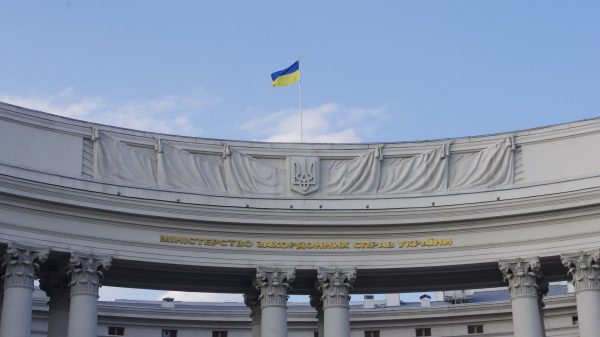The Writers Guild of America went on strike this week. This is the first such breach in 15 years and while it may seem like a distant problem here in Britain, we will soon see the consequences on our TV screens, whether it be comedy or drama.
At this point, I should point out that I'm on the side of the writers, and not just in the sense of «imposing it on The Man.» There's no question they've been mistreated: the gap between the leftovers (a form of royalty) they receive from actual TV and streaming services is significant (much smaller in the latter case), and streamers' withdrawal of older shows from their platforms means that the source of income has almost disappeared.
Even more worrying is the emergence of artificial intelligence and its use in the show's scripts. At this stage, no chatbot will replace Stephen Colbert's writing team, but the Guild is looking to the future and demanding that studios regulate the use of AI in creative projects, a claim that has just been rejected. Instead, they were offered annual meetings to discuss technological advances. This sounds alarmingly dismissive, and of course, a lot can happen in a year. «Hello, now that our chatbot has managed to create a hotel drama set in an exotic location, I'm afraid you don't qualify.»
All of this means, as writer Laura Jacquemine told The New Yorker this week, «an existential struggle for the writing business.» It is also deeply practical — and this is the tragedy of the whole situation. The same article detailed the plight of many writers, including Alex O'Keefe, who worked on the Disney chef drama Bear, revealing that he had to flee to the local public library in Brooklyn when his heater turned off. He also had to buy a bow tie for the Writers Guild Award on credit.
It's heartbreaking, not some priceless creative whining, and it makes me mad at the lack of respect for writing as a craft. Obviously, we live in an age where we are enslaved by marketing and algorithms, where the true genius of what a writer has to offer — unique, personal, responsive — is not appreciated.
 Screenwriters picket outside Fox Studios in the US. Photo: David McNew
Screenwriters picket outside Fox Studios in the US. Photo: David McNew
The concept of a writers' room is complex in this regard. We are less accustomed to this concept here in the UK and I'm not sure about it. I'm all for the writers because, in the language of British television, they have provided a platform for great people like Alan Bleasdale, Dennis Potter and Michaela Coel. In the US, authors are a rarity: even someone with such detailed vision as David Chase used a writer's room to create The Sopranos. There's no doubt that a busy, spontaneous web of creative minds can shape genius, but things like that are on the decline now: Pilot episodes are tested in so-called «mini-rooms» and writers earn less at this stage of the game. /p>
So what does all this mean for us? The late-night talk shows that dominate America may not make an impact in Britain, but other things, most notably comedy and drama, will suffer if the strikes continue. It is very likely that we will see a barren landscape in the not too distant future. Think back to 2007, the year of the last writers' strike, which lasted 100 days. What we saw was a series of hasty approvals for many TV dramas like Desperate Housewives and Lost, which had to drastically cut episodes. The same thing will no doubt happen again.
Worse, however, was the rise of reality television, a form inherently less dependent on the experience of the screenwriter. It is known that it was because of the 2007 writers' strike that the American version of The Apprentice with Donald Trump, which was on the verge of being canceled by its NBC network, suddenly received a last-minute reprieve. We all know what happened next…yes, the reality TV boom that we’ve all been paying dearly for since then. Cultural nadir: Netflix’s Love Is Blind reality show. Credit & Copyright: Netflix via AP
Even before this argument, I began to think that reality TV was becoming a curse. In recent months, we have been subjected to various anti-TV crimes such as Milf Manor — google it or not — while Netflix has been diving into the reality TV market for several years with predictably terrible results. (The dating show Love Is Blind remains my personal failure.) While this may seem like a one-time blip, they will become more common as the value of a writer disappears and the drama budget demands more money.
Such shows are relatively cheap, as are celebrities. travel stories that, in my opinion, show just how desperate British TV has become. There was a time when seasoned experts like Alan Wicker added knowledge and a distinct voice to travel shows. Now the celebrity cult ensures that anyone who can comfortably look in front of the camera gets an all-expenses-paid ride. In Italy, especially fashionable: Danny and Dani Dyer, Stanley Tucci and Clive Miri go for the sweet life. I like Miri, but I don't want to hear what he has to say about Juliet's balcony.
Ultimately, British broadcasters need to make sure they value our writers in a way that America clearly doesn't. Otherwise, we will have to endure how Danny Dyer constantly eats Palermo street food. And you wouldn't want that, would you?


























































Свежие комментарии